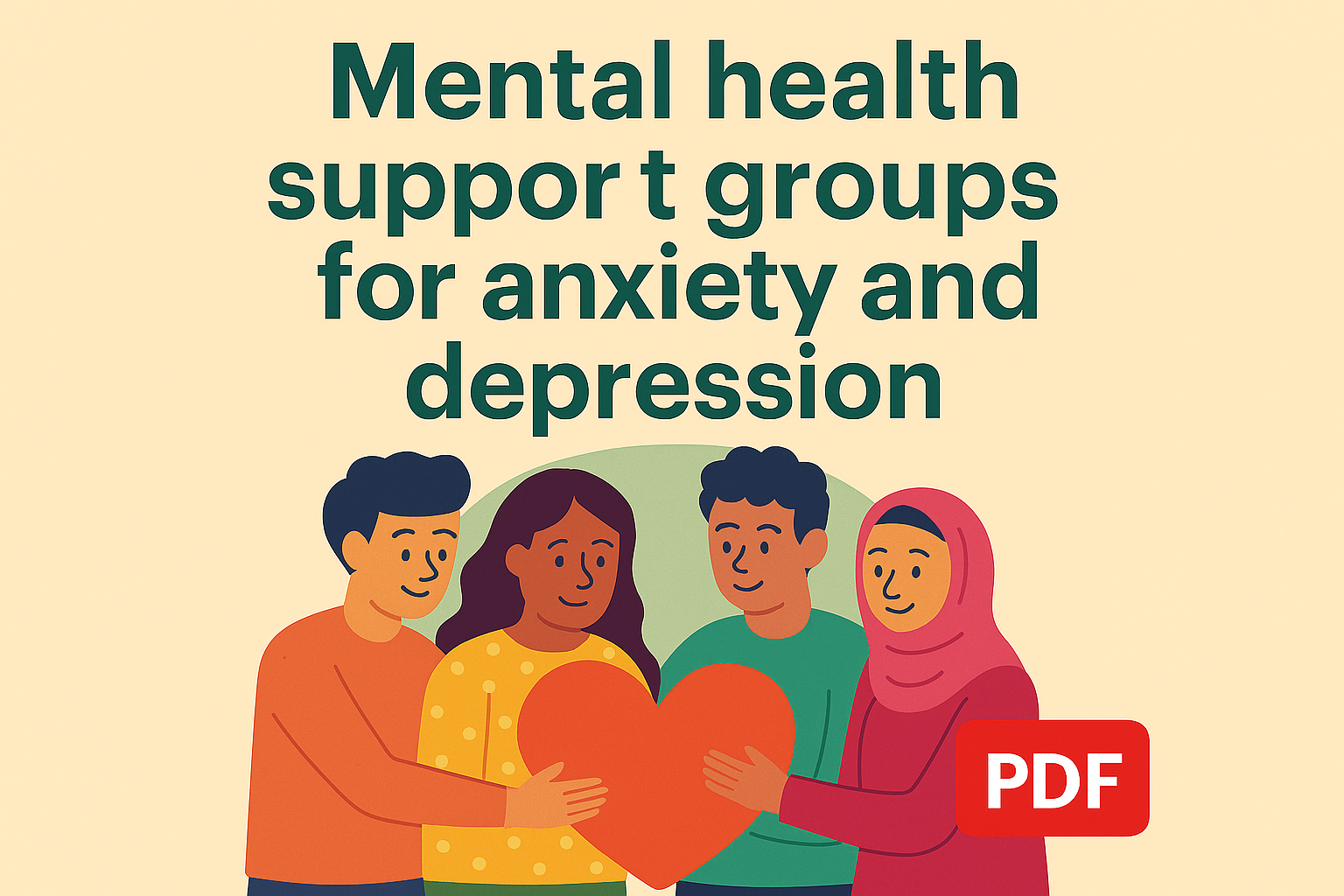In today’s fast paced, digitally overloaded world, anxiety and depression have become common yet deeply personal battles for millions of people. Despite advancements in medication and therapy, many still struggle in silence trapped by stigma, financial burdens, or lack of access to professional care.
But healing doesn’t always begin in a therapist’s office. Sometimes, it starts by sitting in a circle virtual or physical and hearing someone say, “I’ve been through that too.”
This is the transformative power of Finding Strength Together: How Support Groups Help Combat Anxiety and Depression
🤝 Why Support Groups Matter More Than Ever
Mental health support groups provide safe, judgment free spaces where individuals can openly discuss their challenges with people who genuinely understand. Whether facilitated by professionals or peer led, these groups foster connection, compassion, and accountability.
Unlike traditional treatment methods that often feel clinical and detached, support groups bring a human touch to mental health care making participants feel seen, heard, and valued.

🌟 Key Benefits of Support Groups for Anxiety & Depression
Here’s a glimpse into how support groups positively shape mental wellness:
✅ 1. Emotional Validation
Being surrounded by others who’ve walked similar paths helps individuals rebuild self worth. Validation from peers can be more powerful than reassurance from even the most skilled professionals.
✅ 2. A Safe Space to Share
Support groups eliminate fear of judgment. They encourage honest conversations that unlock deep emotional healing.
✅ 3. Normalizing the Experience
Anxiety and depression can make you feel isolated and “different.” Sharing similar experiences helps normalize these feelings, reducing shame and internalized stigma.
✅ 4. Shared Coping Strategies
Every member brings unique tools. Whether it’s journaling, breathing techniques, or positive self talk, the exchange of coping mechanisms can be life changing.
✅ 5. Accountability and Treatment Adherence
When you’re part of a group that checks in regularly, you’re more likely to stay consistent with therapy, medication, and self care routines.
💬 More Than Just Talk: Psychological Impact
The benefits aren’t just emotional they’re scientifically proven. Studies show that support groups can reduce symptom severity and improve treatment outcomes.
Guided group discussions often focus on sleep management, challenging negative thoughts, practicing mindfulness, and setting goals. These structured conversations deepen emotional insight and promote long term healing.
🌍 Making Support Accessible for All
Support groups also remove common barriers to care:
- Online options make them available across geographic and emotional distances
- Free or low cost models help those with limited resources
- Culturally and spiritually sensitive groups ensure comfort and belonging
Even more importantly, support groups extend healing beyond the individual involving families, building community awareness, and bridging the gap between clinical care and real life support.
🧠 Long Term Impact and Empowerment
The ripple effects of consistent group participation are powerful:
- Improved communication and self advocacy
- Reduced feelings of helplessness
- Stronger sense of personal agency
- Better crisis prevention through early intervention
- Sustained recovery and long term emotional maintenance
Finding Strength Together: How Support Groups Help Combat Anxiety and Depression
Discover everything you need to know to start or join a support group, make the most of shared healing, and build a long term mental wellness routine.
Visit more blogs for your daily life problems here

